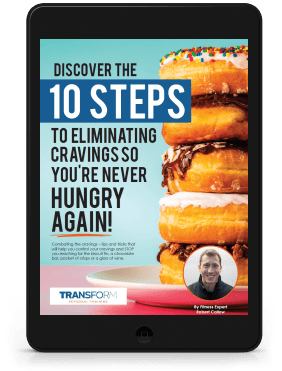Get the most out of your body, get the most out of life! Be the best version of yourself and live a long happy life to show it off!
Habits are small decisions turned into actions that's performed daily.
About 40 percent of our behaviours are habitual!
So that only makes sense when we say that we ‘do things out of habit’. Have you ever drove directly home from work and pulling into the driveway you realised that you needed to go to a shop which is the opposite direction? Yup, hard wired habit.
Speaking of deeply routed habits, a friend of mine turned pescatarian, went to a BBQ ate lots of meat and only after he started to feel uncomfortable did he remember he was not supposed eating meat.
What we do repeatedly, eventually forms the person you are and the things you do and believe in. Having a routine can be great to stay organised, however not all of our habits are good. One of those not so good habit examples would be: biting nails when stresses, smoking, overeating, snacking… these can be extremely difficult to change as they tend to be so deeply engraved in our brains, it makes it almost impossible to act otherwise.
Your fitness level? A result of your habits
Not drinking enough water? A result of your habits
Overeating? A result of your habits
Therefore, you probably guessed it, introducing a new habit or changing an old one won't be easy, and a great amount of patience would be required.
To make it easier lets split the process of building a habit into four stages:
Planting a habit requires time and a little (or a lot) of effort. Remember, on average it takes 6 weeks for your actions to become a habit. Based on the principles above, try to make it more 'appetising' for you, when introducing a new habit, by following these four steps. Make it:
• Go small, go easy
I mean, really small, willpower is like a muscle, it gets fatigued if used too much and your motivation will probably rise and fall as you go. For example, rather than quitting smoking cold turkey, reduce the amount of cigarets you smoke. Big change but easy enough to sustain your motivation. As this becomes a little more of a habit, see if you can also switch from normal cigarets to electronic cigarettes, for example, or help yourself quitting by using nicotine patches.
You can also break the new habit into small chunks - so instead of not smoking all week, select 2 'smoke-less' days instead and slowly add up days little, by little, until eventually you you have no 'smoke-days' in a week left.
2. Slipping is totally fine
Don't be too harsh on yourself, as we said it takes time and patience, and practice makes perfect. If you slipped, just back on track as quickly as possible.
Try not to expect failure, but be prepared and ok with it if it happens.
3. You got this
Again, patience, patience, patience! This is a crucial skill to have, patience is everything.
New habits should feel easy in the beginning and by staying consistent and increasing your habit gradually it may get hard enough, pretty fast.

Book your FREE consultation today and we can coach you guide you through changing old habits but also introducing new ones!
#1 Skipping Breakfast
Having a portion of complex balanced breakfast is the best way to start your day, keeping you fuller for longer and provide you plenty of energy for the busy day ahead.
#2 Sitting too Much
Nowadays, majority of people lead sedentary job, it is important to take a break here and there. Get up, walk, get the blood flowing. Taking stairs instead of elevators, walking instead of driving - you get the idea.
#3 Not Drinking Enough Water
Drink water throughout the day to stay hydrated while boosting your metabolism.
Check out our blog: DRINK YOURSELF INTO WATER DRINKING HABIT
#4 Lack of Sleep
This can make your brain function slower and leave you feeling sluggish. Not to mention, over the time it can decrease your metabolism and mess up your hormonal balance.
#5 Stress
Stress produces a hormone called cortisol that leads to increased appetite, cravings, laziness and restlessness. Try managing your stress levels by taking some down time, practising self care, exercising or even meditating.
This ebook reveals the 10 steps to eliminating cravings so you're never hungry again!

Get the most out of your body, get the most out of life! Be the best version of yourself and live a long happy life to show it off!
Whatever your question or query please feel free to get in touch and one of our expert team will get straight back to you
** Specific results are not guaranteed. If you have rigorously followed our fitness and nutrition programme for six weeks and honestly believe you can’t feel the difference or see the results, we’ll recompense you the cost of your course.
Monday - Friday - 6.00am-9.30pm
Saturday - 8am-1pm
Sunday - Closed
*We don’t share your personal details with anyone
© Copyright TRANSFORM PERSONAL TRAINING LTD BRIGHTON & HOVE 2023